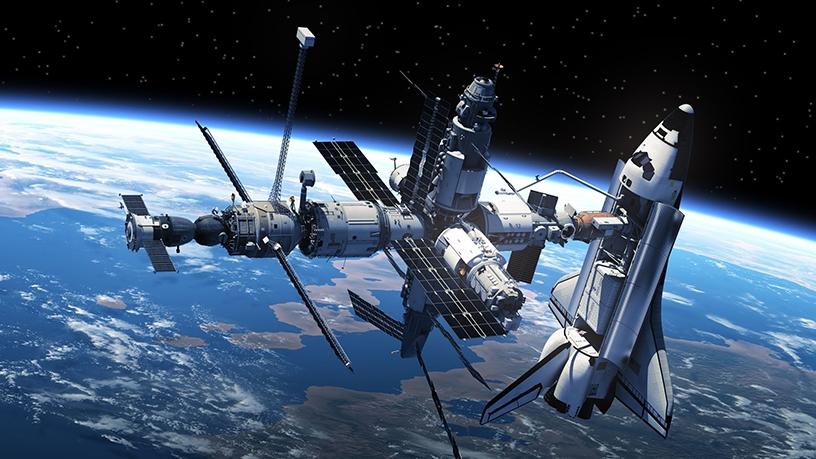
South Africa is participating in the United Nations Conference on the Exploration and Peaceful Uses of Outer Space (UNISPACE+50), under way in Vienna, Austria.
Trade and industry deputy minister Bulelani Magwanishe will deliver a country statement at the symposium as SA aims to promote its programmes and activities, and showcase SA's capabilities in space science, space engineering, space operations, Earth observations and space regulations.
The forum commemorates the 50th anniversary of the ground-breaking 1968 UN Conference on the Exploration and Peaceful Uses of Outer Space, the original UNISPACE.
"South Africa's participation in these celebrations re-affirms our commitment in the crafting of the future of space governance that enables space-derived economic and social benefits through the Space 2030 Agenda," says Magwanishe.
"We gather here at a critical time when the international community has commenced with the implementation of the 2030 Agenda for the achievement of Sustainable Development Goals. South Africa is fully committed to this effort, particularly in building partnerships and strengthening international cooperation in space activities and making sure our people benefit from space technologies."
Magwanishe is leading a South African delegation that comprises officials from the departments of trade and industry (DTI), international relations and cooperation, science and technology, telecoms and postal services (DTPS), the South African Council for Space Affairs and the South African National Space Agency.
Participation, cooperation
The symposium has been running all week and the 61st session of the United Nations Committee on the Peaceful Uses of Outer Space (UNCOPUOS) will get under way on Friday and run until 29 June.
Magwanishe says SA is a respected member of UNCOPUOS and its sub-committees, and will continue to play a leadership role within the United Nations multilateral system. This will be through ongoing active participation, and enhancing international cooperation with key partners for the development of the industry.
"We are committed to actively engage UNCOPUOS on possible reforms of the structures of global space governance in order to take into account the increasing number of new space actors, and the increasing importance of commercial space actors in the international space environment. [This is] all within the context of ensuring the long term sustainability of outer space activities," Magwanishe adds.
The goal for the UNISPACE+50 is for UNCOPUOS to recognise the achievement over the past 50 years and endorse a resolution that will be submitted to the General Assembly later in the year.
There will also be industry engagements through the side-line exhibition that is organised for various industry players, where SA will showcase its capabilities within the space industry.
Magwanishe says the DTI, as the custodian of the primary legislative regime, has the responsibility of ensuring SA makes a meaningful contribution to the work of the UNCOPUOS committee, and to further ensure the interests of the nation are considered. He believes attending and making contributions during the meeting will be beneficial to the country's space industry.
Space science for all
After "relentless" progress in space technology, the focus for the international community must now shift to ensuring the benefits of space science are available to everyone, everywhere, according to Simonetta Di Pippo, director of the UN Office for Outer Space Affairs.
She told the symposium that space technology had become a "fundamental pillar" of 21st century society, driving development worldwide.
"What remains to be seen, however, is how we can work collectively to organise our efforts across the board to deliver the full potential of space for sustainable development."
Di Pippo said space is the vital enabler to realise the ambitions set by global goals, including the 2030 Agenda for Sustainable Development, as well as the Paris Agreement on Climate Change and the Sendai Framework to reduce the risk and impact of disasters across the world.
The impact of global cooperation in using space for sustainable development cannot be overstated, she added.
"From city halls to the UN General Assembly, when policy-makers need to see the big picture to make well-informed policy decisions, they are turning to space," said Di Pippo. "The challenge is to ensure the tools and information space can provide are helping to make effective policy in all corners of the world."
David Kendall, chairperson of the UNCOPUOS, said the increasing involvement of UN member states in the committee was a reflection of the increasing importance that countries around the world attach to the frontier science.
"Member states are now realising more and more that space is an essential element in delivering their programmes to their citizens," he said.
The need, therefore, is to develop "new directions and thinking" in relation to the governance of outer space, he added.
SA space programme
DTPS deputy minister Stella Ndabeni-Abrahams also touted SA's space capabilities at the AfricaCom 2017 conference in Cape Town last November, saying SA has a well-developed space programme.
"To date, we have procured launches for five satellites. There are also plans to put an Earth observation satellite into service in the next few years," she said.
"In December 2008, Cabinet approved the National Space Policy and the National Space Strategy. In this respect, the South African Council for Space Affairs is responsible for the regulation and licensing of national space activities, while the South African National Space Agency is responsible for the implementation of the national space strategy for all government departments."
In December 2017, in collaboration with the United Nations Office for Outer Space Affairs, SA hosted the United Nations/South Africa Symposium on Basic Space Technology in Stellenbosch.
Share